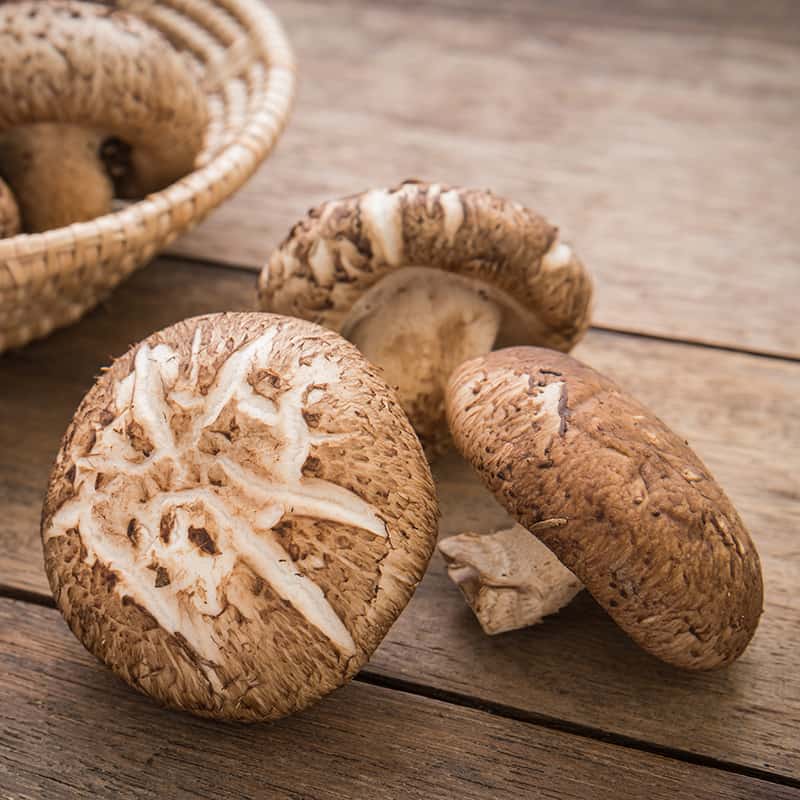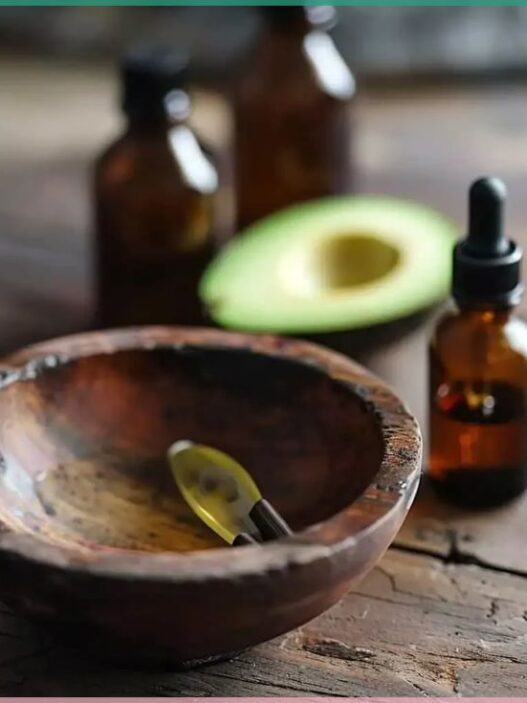Generally speaking, shiitakes are fine to consume as long as you get them from a grocery store and steer clear of wild types, unless you have a known allergy or intolerance.
However, shiitake mushrooms can occasionally have negative side effects. Here are a few possible shiitake mushroom side effects associated with eating the fungus.

Shiitake Mushrooms – An Overview
One kind of edible fungus is the shiitake mushroom (Lentinus edodes). It is indigenous to China and Japan and includes a substance known as lentinan.. Shiitake is also one of the most common kinds of mushrooms. They feature a narrow, curving stem and a wide, brown crown.
They are abundant in fiber, plant chemicals, protein, vitamins, and healthy carbs, just like other mushrooms. Among other advantages, these nutritional advantages may help prevent cardiac issues, high blood pressure, and neurological illnesses.
The second most popular type of mushroom consumed worldwide is shiitake. Shiitake mushrooms contain compounds like lentinan that may boost immunity.
There is no solid scientific proof to back up the claims that shiitake mushrooms or an extract known as AHCC can treat HIV/AIDS, the common cold, the flu, and a host of other ailments. Additionally, there isn’t any solid proof that shiitake mushrooms can treat COVID-19.
Here are some shiitake mushroom side effects you should know:
You may be allergic to or intolerant to mushrooms
Shiitake mushrooms and other wild mushrooms can cause allergic reactions, albeit they are not among the most common food allergens. When your immune system reacts excessively to a food, you have an allergic reaction:
- Skin irritation
- A clogged or runny nose
- Tears and itching eyes
- Swelling
- Wheezing
- Throwing up
- Having diarrhea
- Cramps in the stomach
Steer clear of shiitakes and any related items if you are aware that you are allergic to mushrooms.

The American Academy of Allergy, Asthma & Immunology states that some patients may experience anaphylaxis, a severe allergic reaction that can include breathing difficulties or even unconsciousness. If you have any of the following symptoms after consuming shiitake mushrooms, call 911 right away:
A Skin Rash could be caused by Shiitake mushrooms
A mushroom allergy rash isn’t the only skin reaction that can occur when taking shiitake mushrooms. In fact, shiitake flagellate dermatitis, a rash caused by shiitake mushrooms, can also result from consuming the fungus raw or undercooked.
Photos of shiitake dermatitis reveal that the rash resembles whiplash marks and usually appears a day or two after eating the mushrooms. It is brought on by a poisonous reaction to lentinan, a compound found in mushrooms.
Topical corticosteroids or antihistamine medications can be used to treat shiitake mushroom dermatitis, which typically goes away with conservative treatment in 10 to 14 days.
Shiitake mushrooms can cause digestive problems
Generally speaking, shiitake mushrooms from the grocery store are safe to consume. However, Colorado State University has found that mushrooms harvested in the wild might occasionally contain toxins that induce diarrhea and vomiting.
For those who have an intolerance, which can happen when your body has trouble absorbing a certain food, shiitake mushrooms can also be tough to digest. Symptoms of food intolerance include:
- Gas
- Bloating
- Pain in the stomach
- Having diarrhea
- Attacks of migraines and headaches
- Heartburn
It is preferable to substitute shiitake mushrooms (like other vegetables) in your meals if you are intolerant to this cuisine.
Additional possible adverse reactions
The following are other possible adverse effects associated with shiitake mushroom consumption:
- Eosinophilia, or an abnormally elevated white blood cell count
- Skin lesions that are photosensitive (sensitive to sunlight)
- After handling shiitake mushrooms, respiratory ailments such as rhinitis or asthma related to the job
- Another risk is pneumonia brought on by shiitake spore allergy.
Individual sensitivities can affect the intensity of these side effects, and not everyone will experience them.
Conclusion
After consuming shiitake mushrooms, have you encountered any unexpected symptoms? You’re not by yourself. Although shiitake mushrooms are highly praised for their health advantages, some people may have negative side effects.
Even though shiitake mushrooms are frequently used in East Asian cooking and medicine, it’s crucial to be aware of the shiitake mushroom side effects, especially for those who have dietary allergies.
An extensive summary of shiitake mushroom adverse effects, such as allergic responses, gastrointestinal problems, skin rashes, and possible drug interactions, is given in this article.
Consult your doctor or physician if anything unusual happens.

















